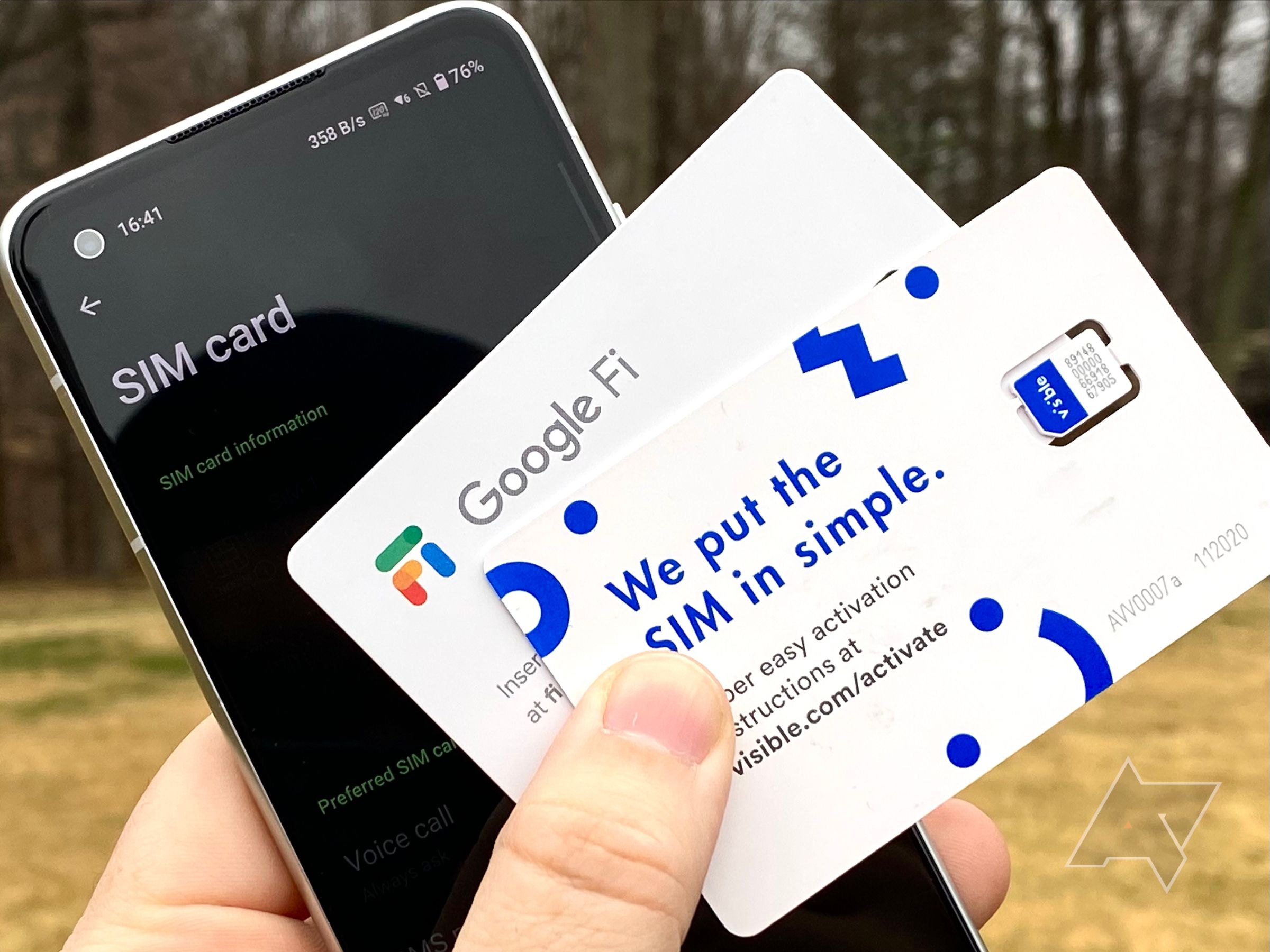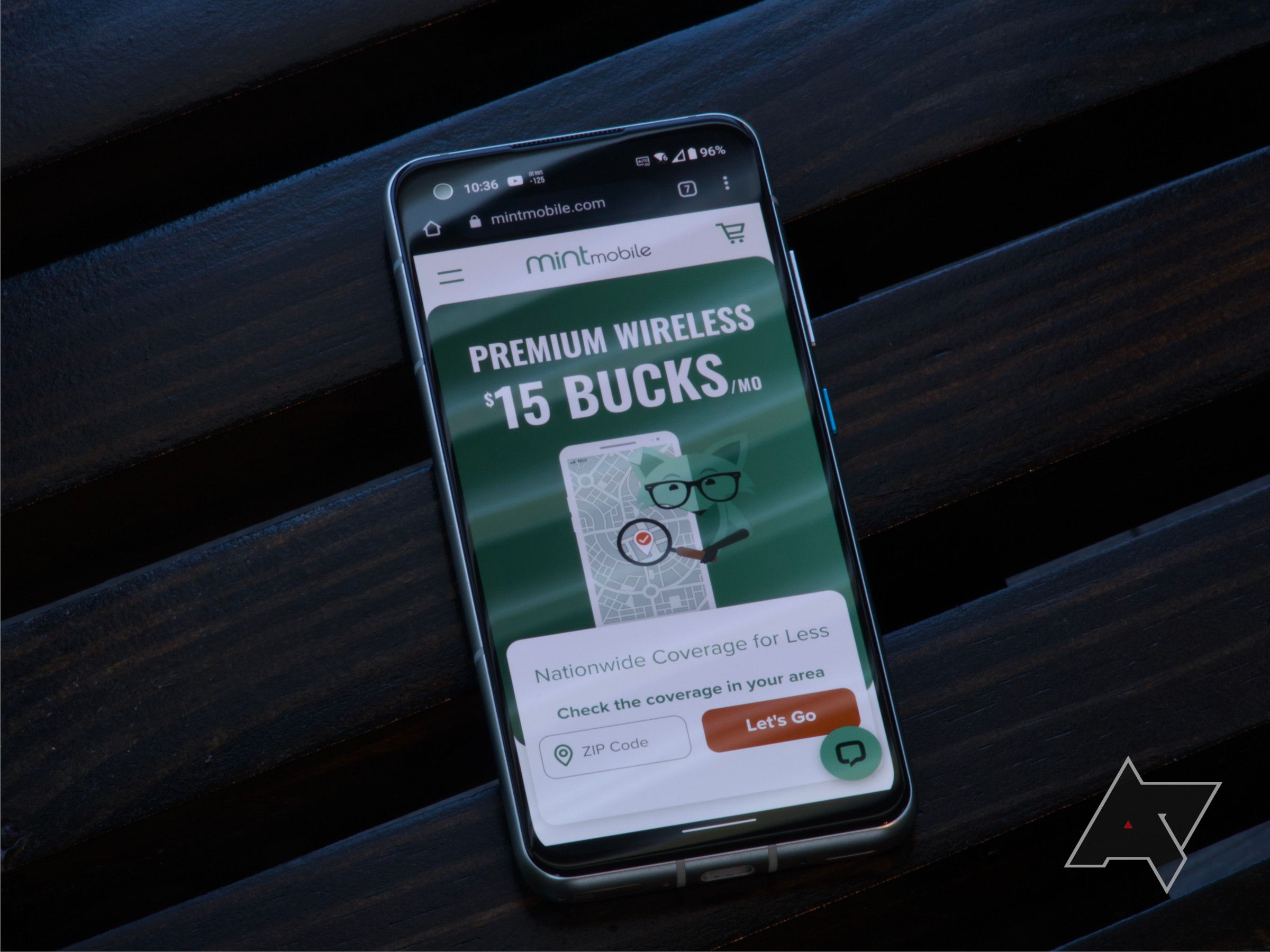Depending on your needs, the difference between postpaid and prepaid plans might not be clear. If you want to save some bucks, prepaid phone plans offer better value than postpaid plans. Carriers don't commonly advertise these flexible phone plans, so it's easy to miss them when searching for a new one. The top prepaid phone plans offer similar benefits as postpaid plans but at a more affordable price. It's a smart way to reduce your spending if you're thinking of picking up an inexpensive Android phone. We explain why prepaid plans are cheaper than postpaid and whether you should consider buying one.
What is a prepaid phone plan?
They're known as pay-as-you-go plans, meaning your prepaid bill is paid before the monthly cycle rather than at the end. Because of this, you don't need a credit check, and most carriers let you cancel at any time.
On a prepaid plan, you can only use the voice, text, and data services you paid for beforehand. If you run out, your carrier may offer extra for a fee. If you don't make your monthly payment, you won't suffer a hit to your credit score. Instead, you lose access to your plan until you add more money. No credit check also means less data can be stolen in a breach.
If you move to another country or want to try a different carrier, prepaid plans make it easy to experiment with other carriers. If you switch, wait out your current month and purchase a new prepaid plan.
Why does a prepaid phone plan cost less?
While the standard monthly bill for prepaid phone plans is less than their postpaid equivalents, they are often subject to network deprioritization or throttling and include fewer perks. For example, major carriers offer subscribers free streaming service subscriptions or access to other services like Xbox Game Pass or Dropbox. You can also expect hardware discounts from the carrier's online store and perks for regularly upgrading your phone. Depending on whether you use the extras, these deals and discounts can make postpaid plans a better option.
When a network is busy, carriers prioritize users with postpaid plans, which are more profitable. This is done through data throttling and data deprioritization. Data throttling means prepaid users usually have a lower high-speed data cap than postpaid users. For example, a prepaid plan might offer 40GB of high-speed internet before hitting the brakes, compared to 50GB for a postpaid plan.
Data deprioritization happens when the network is too busy. Carriers slow down prepaid users first, freeing up the network for others. You may experience patchy connectivity when talking or texting in a busy area. If you want HD video streaming, a prepaid plan may not offer unthrottled streaming as an option.
Carriers also tend to offer better deals for their prepaid plans for groups. While some prepaid plans offer discounts for groups, families usually get a better deal with postpaid plans. For single users, prepaid plans are generally cheaper.
What are MVNOs?
The easiest way to find prepaid plans is to look at Mobile Virtual Network Operators (MVNOs). These carriers rent infrastructure and pass the savings on to you. (for example, Mint Mobile uses T-Mobile's network).
Some examples of MVNOs include Mint Mobile and Visible. They have access to their parent networks' coverage and benefits (for example, access to the network's 5G service) but without the maintenance costs.
MVNOs tend to focus on phone plans, not handsets. While some offer phones alongside their plans, the offerings are limited compared to regular carriers.
MVNOs only offer prepaid plans because they purchase wholesale data as they go, chunks of which are reserved by users. Think of MVNOs as a digital version of big-box stores like Costco.
All of this translates into lower costs for the consumer, but there are a couple of catches. MVNOs generally offer fewer bonuses when signing up and have fewer plan choices. You may also be subject to data throttling and deprioritization as the big carriers prioritize postpaid users.
If you're looking for a prepaid phone plan, explore MVNOs. The big carriers treat prepaid plans as a side business. For MVNOS, it's usually their only business.
Should you get a prepaid phone plan?
Like all things, it depends on personal factors. Even if cost is your number one concern, comparing prepaid and postpaid plans is worth comparing as you might find a better postpaid deal (for example, if you need a plan for lots of people).
A prepaid plan might be better if you:
- Have a poor credit score.
- Aren't purchasing for multiple people.
- Live temporarily in another country.
- Buy your devices separately from your carrier.
- Prioritize price over features.
- Aren't sure about what phone plan you want.
A postpaid plan might be better if you:
- Have a family with multiple devices.
- Want to spend a little more for perks.
- Regularly upgrade your phone each year.
- Want to build your credit score.
- Don't want to risk deprioritization or data throttling.
Prepaid vs postpaid plans: It's your choice
Now that you know the pros and cons of both phone plans, the choice is yours. A prepaid plan might not be best for you, even if you prioritize value when choosing a phone plan. The best value data plans include prepaid and postpaid options, so carefully consider your options before you decide.
FAQ
Q: What are the benefits of a prepaid phone plan?
- Prepaid phone plans are often less expensive than postpaid options in the U.S.
- Since prepaid phone plans do not require a contract, you can easily switch or cancel your service.
- Prepaid phone plans tend to offer more niche features than their postpaid siblings. Some MVNOs offer free or discounted texts or calls to dozens of countries, while others include streaming apps or cloud storage options.
Q: What are the disadvantages of a prepaid phone plan?
- Prepaid carriers are less likely to offer steep discounts on flagships and other devices since you're not locked into a contract.
- Some MVNOs and budget carriers offer budget phones that may not work well (or at all) if you change carriers.
- Prepaid phone plans are unlikely to be lenient when it comes to late payments.
- Customer service tends to be pretty mediocre on prepaid carriers compared to their postpaid alternatives.
- Many prepaid carriers and MVNOs do not have brick-and-mortar retail locations.
- Most MVNOs deprioritize or throttle speeds when their networks are overloaded.
Q: What should I look for in a prepaid carrier?
- Make sure your phone will work on a prepaid carrier's network before you sign up. Look for a compatibility checker on the carrier's website or give your IMEI number to a customer service representative. Do not assume your phone will work on an MVNO that leases spectrum from your current carrier. While this used to be a common hack, some MVNOs have limited, device-specific 5G support.
- Read the fine print carefully. If it seems like an MVNO offers its service at a price that's too good to be true, you can usually figure out why if you read the terms and conditions. We frequently see carriers that advertise "5G coverage," but fail to mention that you get a few GB of 5G coverage before LTE kicks in.




